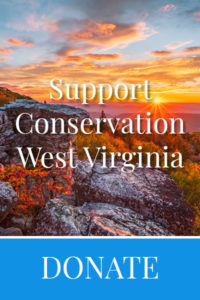West Virginia Has Always Been for Sale. Why Should Now be Different?
West Virginia has had one long history of selling valuable natural resources and public lands to commercial interests. When the dust settles from these transactions and they can be viewed without the hyped rhetoric of the moment, we often conclude that the price has been ridiculously low and the damage to our natural heritage catastrophic. In other words, we deeply regret them. The state was once covered with first growth hardwood forests. These are now gone. The southern Appalachians represent a unique biosphere of plants and animals. This is now threatened by mountaintop removal and other practices on lands owned by coal companies purchased on the cheap a century ago.
Isn’t there is always some enticing narrative that makes the sale of our natural heritage seem attractive? Sometimes the narrative is as simple as cash on the barrelhead for poor and unsophisticated mountain people. Now the narrative is to make way for a hydrogen hub — an industrial complex that will use West Virginia natural gas to produce “blue hydrogen,” the holy grail of clean energy. That hydrogen hub would be right here in West Virginia! And it will create many jobs! And the state’s economy will improve! And so on, and so on. Shouldn’t we have a hangover from this kind of talk by now?
The problem is that the process of creating blue hydrogen from methane frees carbon dioxide, the greenhouse gas causing climate change. We’ll have to dispose of that carbon dioxide somewhere. Guess where? The West Virginia Legislature has just provided the answer in yet another example of short-sighted behavior right as the 2022-2023 session opened. SB 161 and SB 162 authorize the Department of Natural Resources to auction off “pore space” underlying state forests, natural and scenic areas and wildlife management areas. Pore space is defined elsewhere in the code as underground natural or manmade cavities. Only a last-minute amendment saved state park land from this pore space auction.
What could possibly go wrong with selling empty space underneath environmentally sensitive state-owned land? Quite a bit. The requirements for obtaining a permit to sequester carbon are contained in legislation passed last year but obviously geared to the use of existing gas and oil wells for that purpose. Creating a manmade cavity solely for the purpose of carbon sequestration is something completely new. Nothing restrains the DNR from complete discretion as to the scientific or economic soundness of the project contemplated by the bidder. The only thing the statute requires for a successful bid is the highest price.
Have we learned our lesson from earlier sales of the public patrimony? No, we most certainly have not. Carbon capture and storage technology is currently unproven at commercial scale. Nevertheless SB 161 and SB 162 zoomed through the Senate bypassing consideration in any committee, receiving no public comment and without advance posting of the text on the Legislature’s website for public review. The only thing that could justify this anti-democratic behavior is fear of a public backlash.
The Charleston Gazette has reported that an unnamed source said the legislation is aimed at a single company with a carbon sequestration plan in order to secure its investment in West Virginia. But the existing legislation from last year already allows a company to purchase privately held land for the purpose of carbon sequestration. Evidently this is not compliant enough with the needs of this unnamed company. The availability of sensitive public lands, which have only one owner, is necessary. So West Virginia has rolled over like a warm puppy.
I am all in favor of new technology to minimize greenhouse gasses and preserve the environment. I am not in favor of throwing over all caution about sensitive public lands for a speculative benefit the dimensions of which cannot now be measured, particularly without the searching public inquiry generally required for things of this nature. But it is ever thus in West Virginia. What we need is a public advocate for the environment much like a guardian functions for a minor who cannot speak for herself. We just can’t depend on the Legislature for this.

